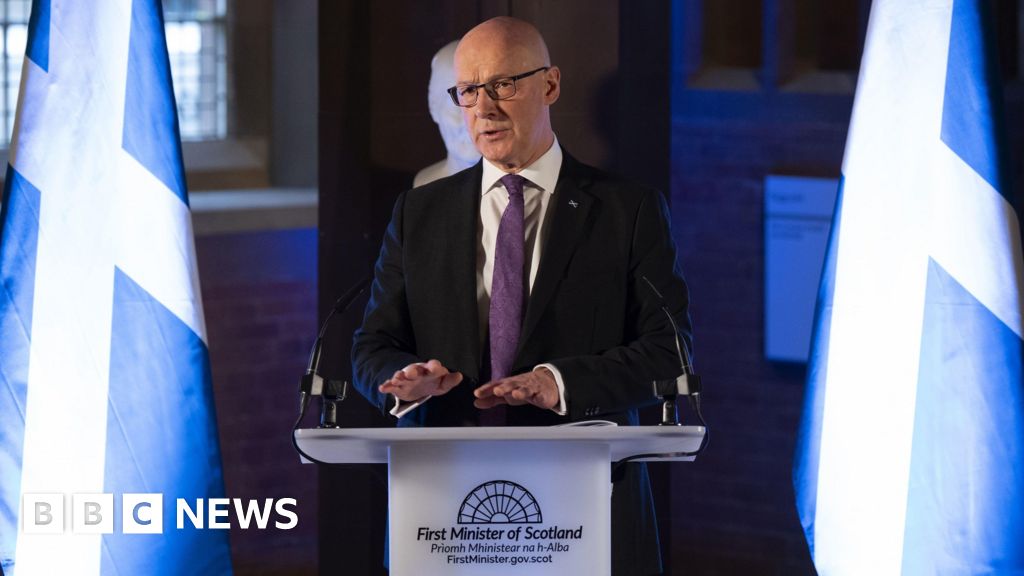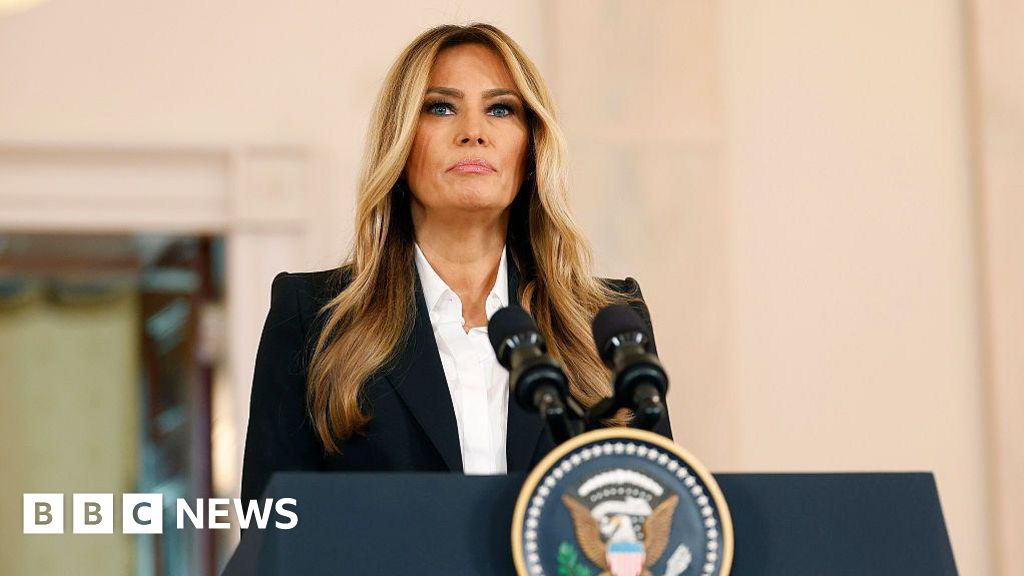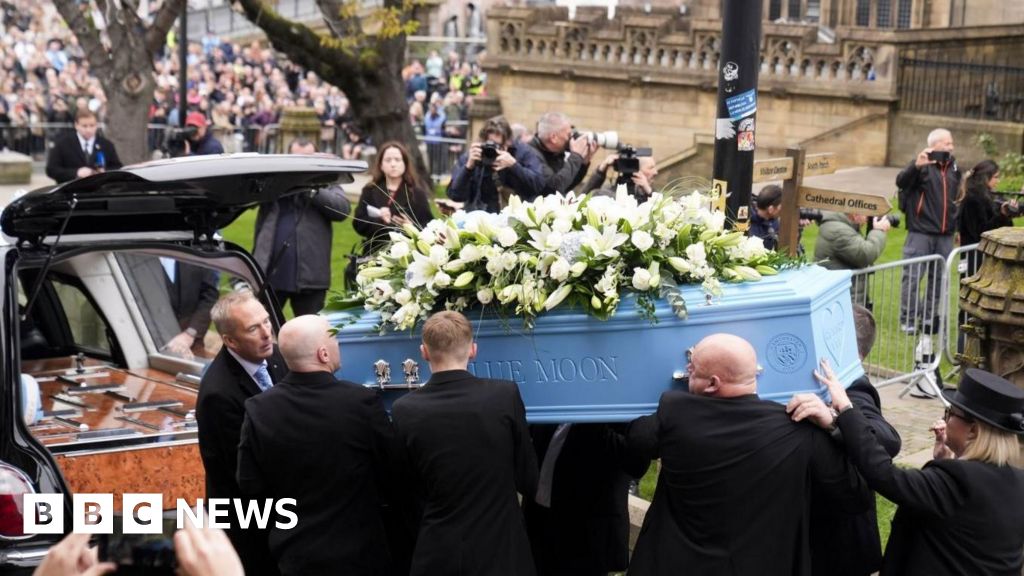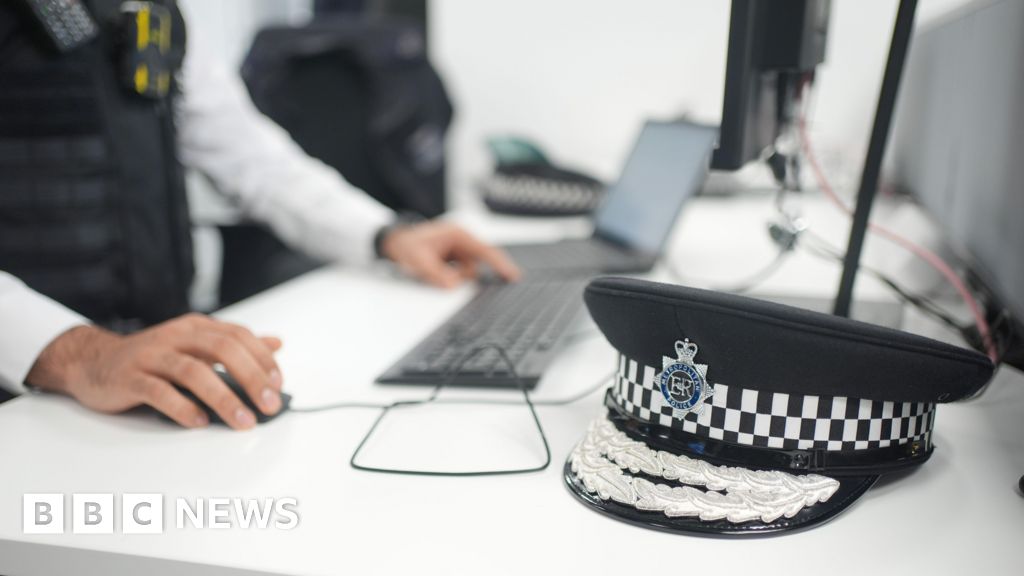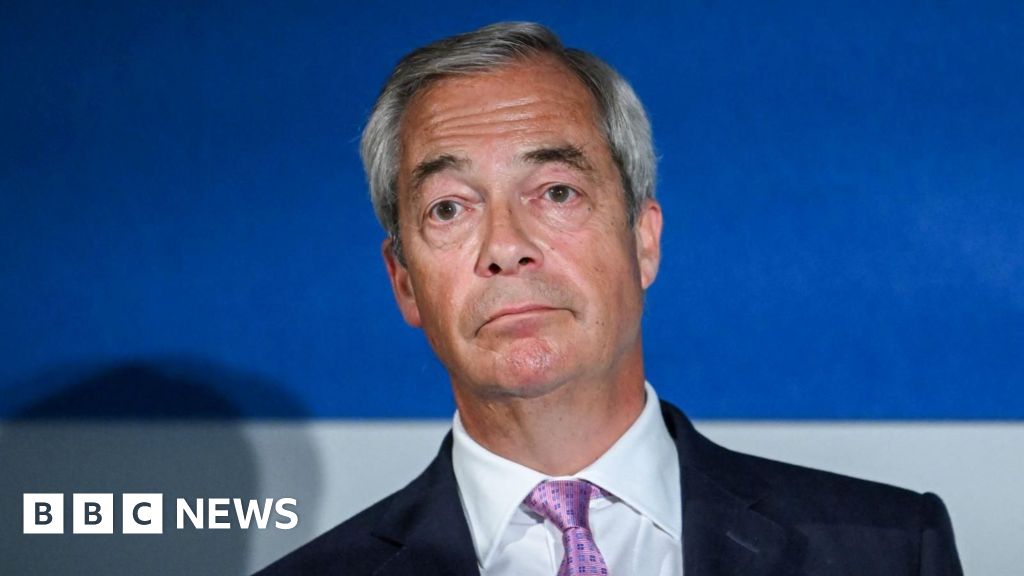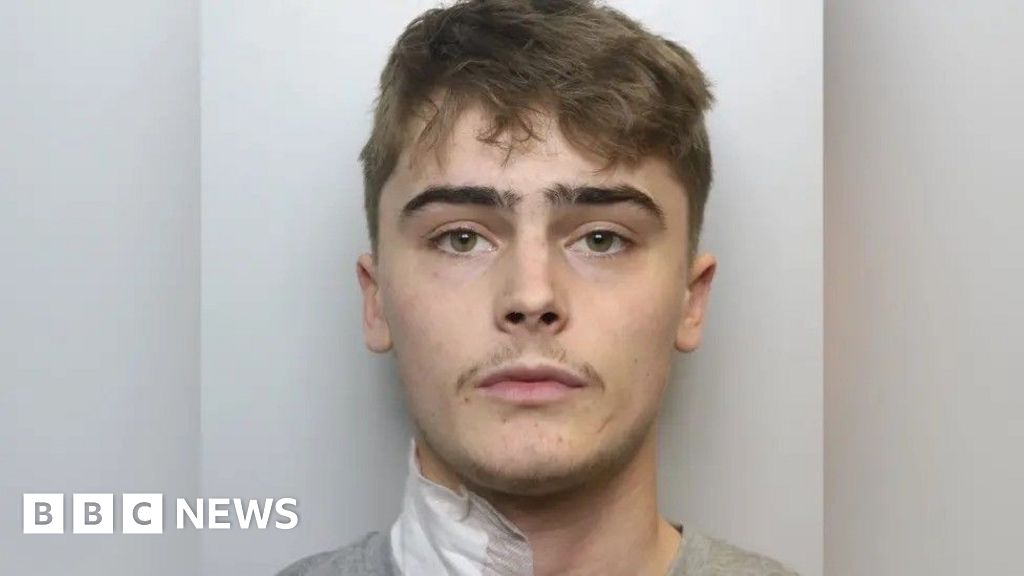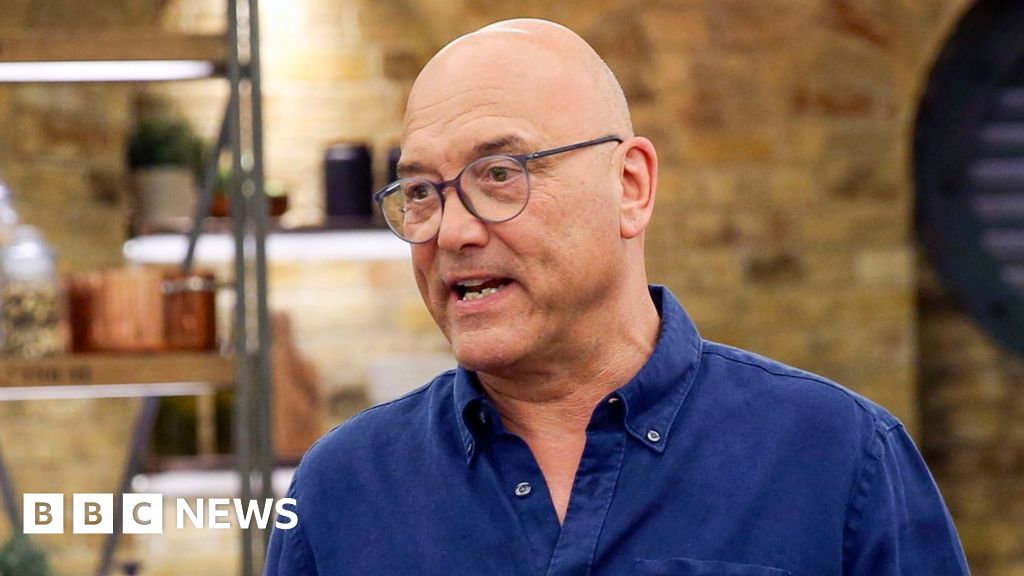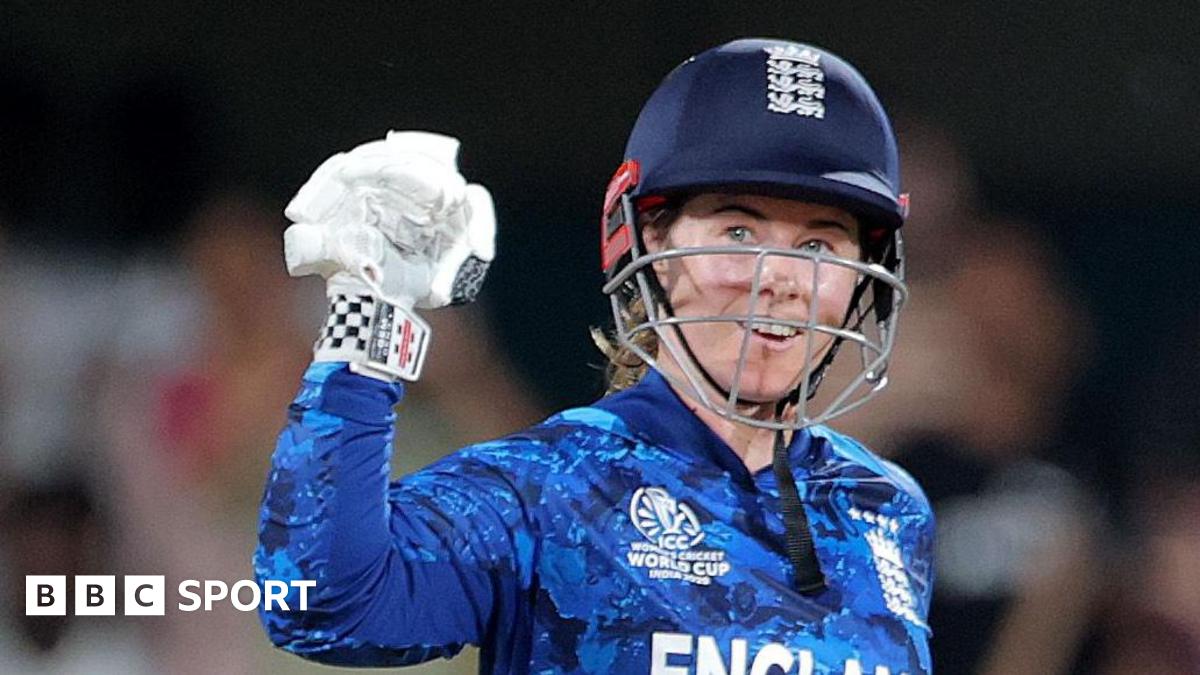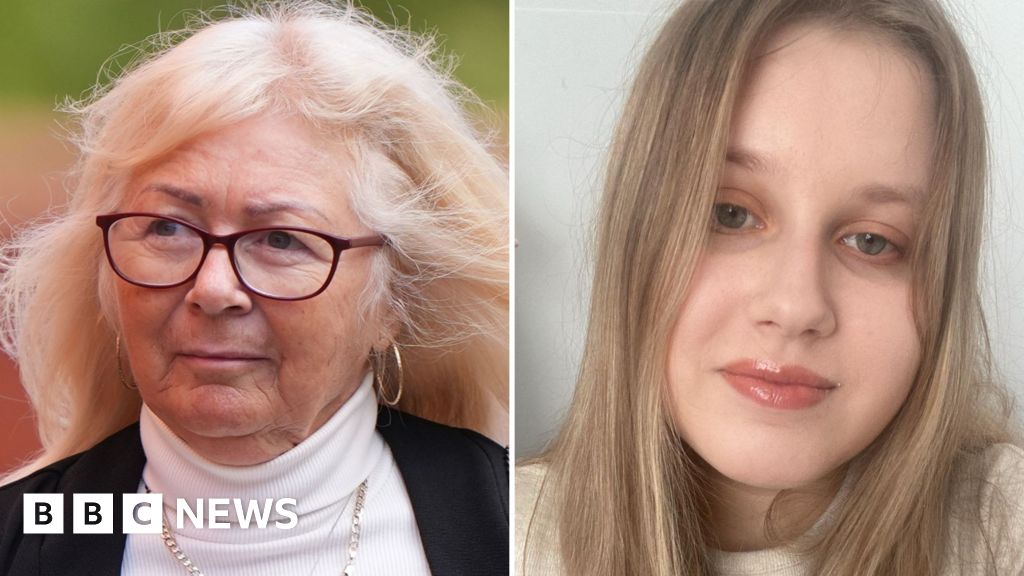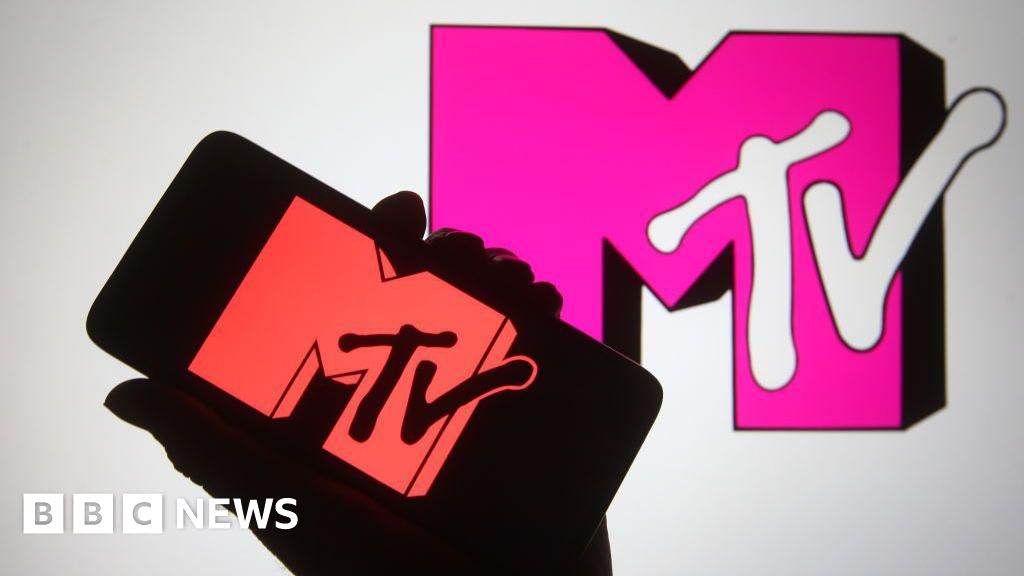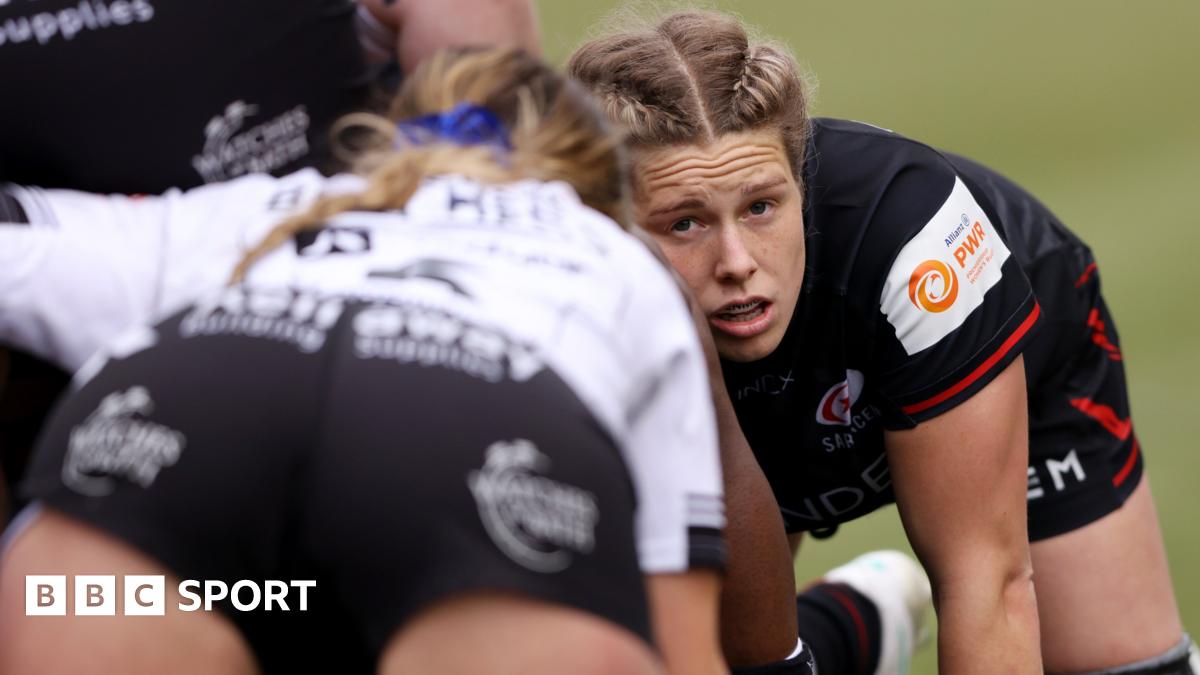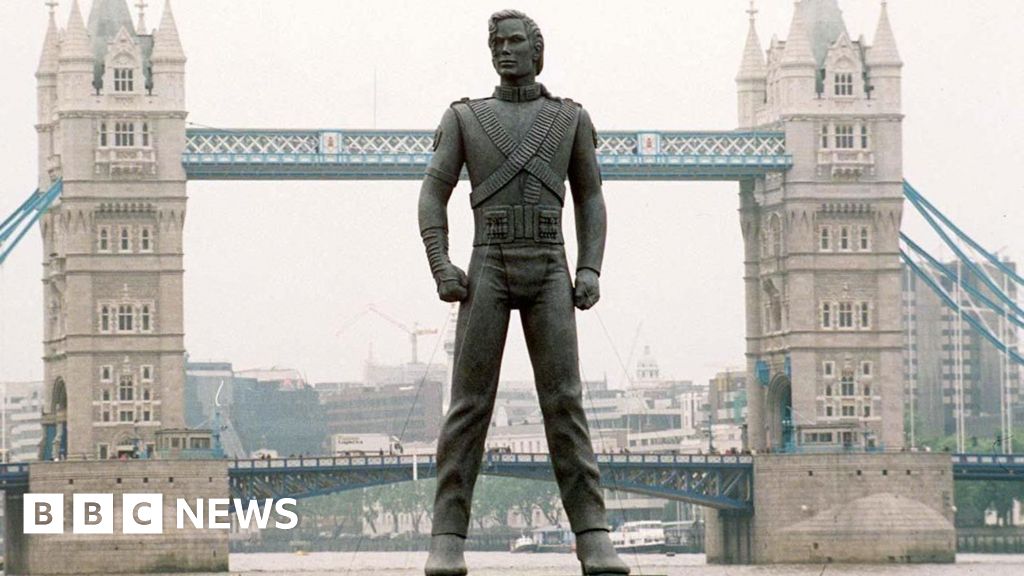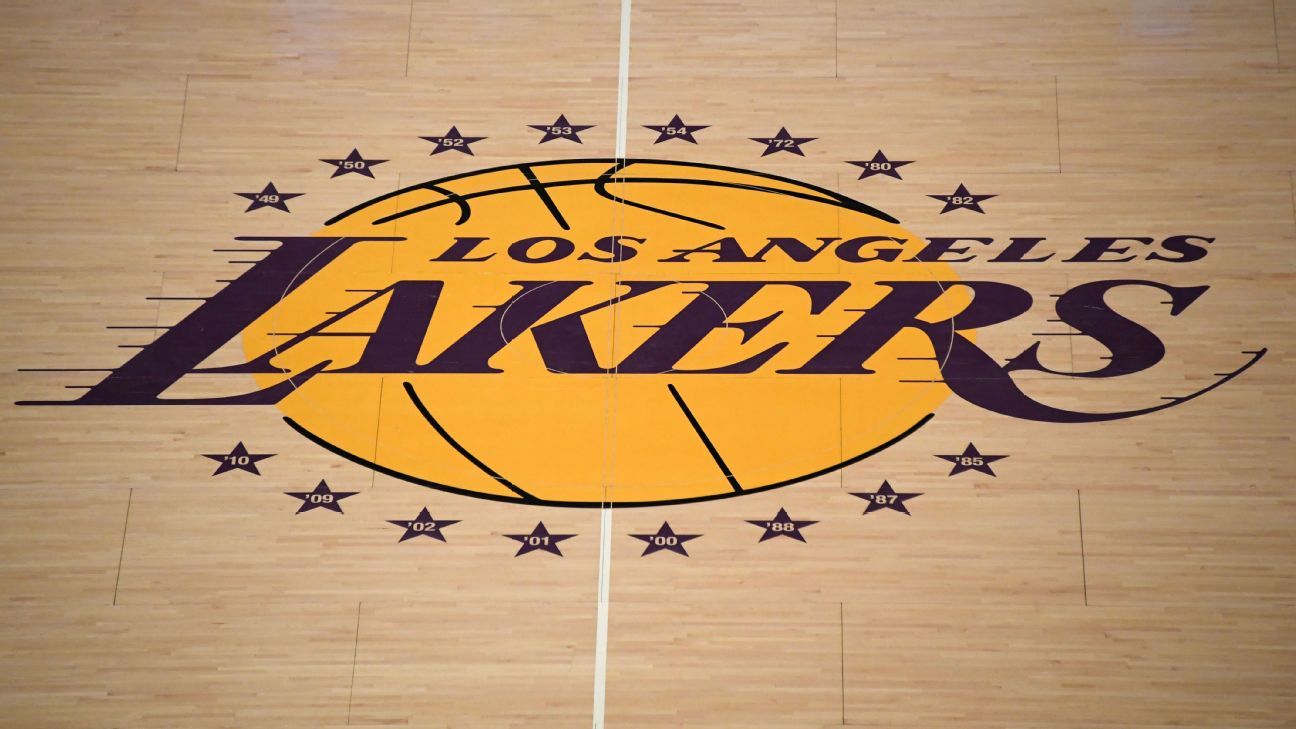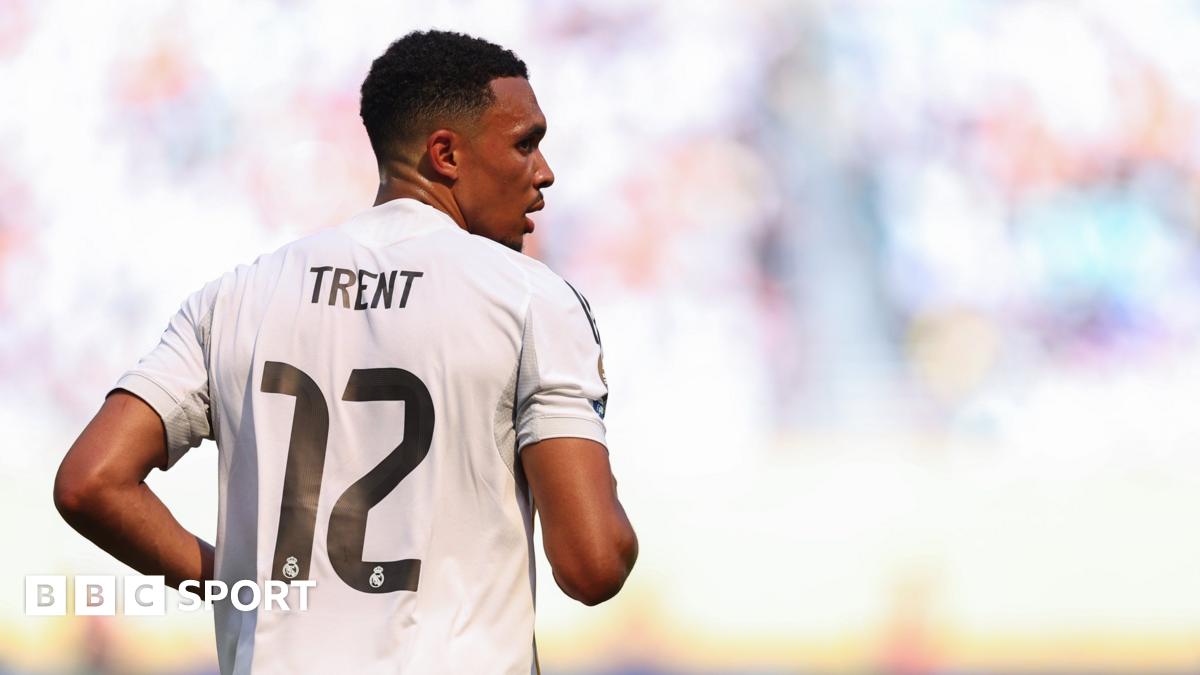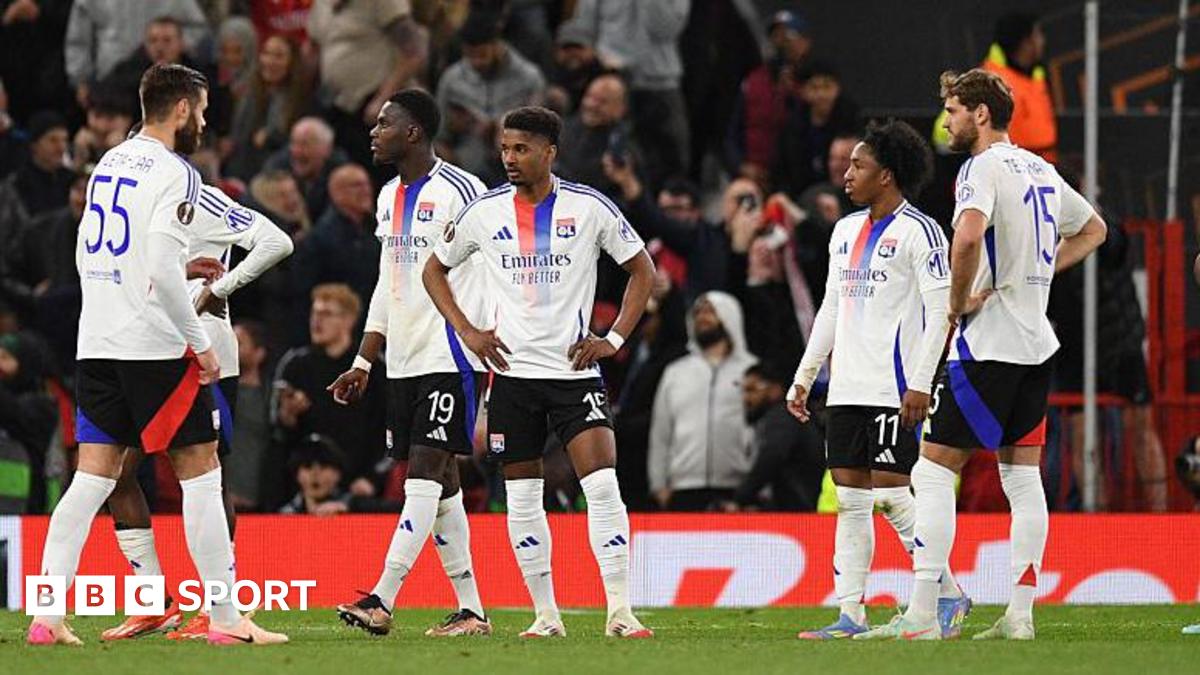Steffan Powell, Sian Vivian & Ben Summer
BBC Wales Investigates

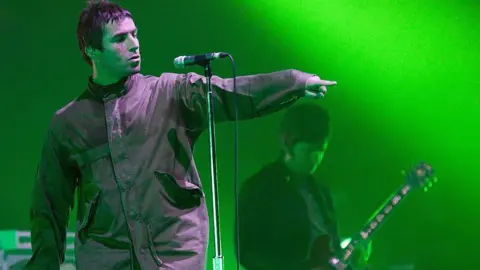 Getty Images
Getty Images
Tickets for Oasis's reunion tour were being listed on resale websites for more than £6,000 - about 40 times the face value - when they went on sale in August
Ticket touts are employing teams of workers to bulk-buy tickets for the UK's biggest concerts like Oasis and Taylor Swift so they can be resold for profit, a BBC investigation has found.
We uncovered some touts are making "millions" hiring people overseas, known as "ticket pullers", with one telling an undercover journalist his team bought hundreds of tickets for Swift's Eras tour last year.
Our reporter, posing as a would-be tout, secretly recorded the boss of a ticket pulling company in Pakistan who said they could set up a team for us and potentially buy hundreds of tickets.
The UK government plans new legislation to crack down on touts but critics argue it does not go far enough.
Shortly after pre-sale, where a limited number of fans could buy Oasis tickets when they went on sale in August, tickets for their UK gigs were being listed on resale websites like StubHub and Viagogo for more than £6,000 - about 40 times the face value of a standing ticket.
We found genuine fans missed out or, in desperation, ended up paying way over the odds as touts have an army of people working for them to buy tickets for the most in-demand events as soon as they go on sale.
Ali, the boss of the ticket pulling company, boasted to our undercover reporter that he'd been successful at securing tickets for popular gigs.
"I think we had 300 Coldplay tickets and then we had Oasis in the same week - we did great," he told us.
Ali claimed he knew of a UK tout who made more than £500,000 last year doing this and reckons others are "making millions".
Our research found pullers buy tickets using illegal automated software and multiple identities which could amount to fraud.
Another ticket pulling boss, based in India, told BBC Wales Investigates' undercover reporter: "If I'm sitting in your country and running my operations in your country, then it is completely illegal.
"We do not participate in illegal things because actually we are outside of the UK."
A man who worked in the ticketing industry for almost 40 years showed us how he infiltrated a secret online group that claims to have secured thousands of tickets using underhand methods.

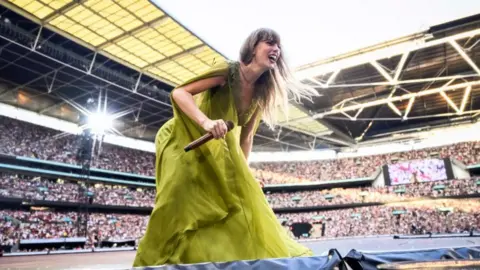 Getty Images
Getty Images
Taylor Swift played to almost 1.2 million people in the UK in 2024 on her two-year, 152-show Eras tour
Reg Walker said members of the group could generate 100,000 "queue passes" - effectively allowing them to bypass the software that creates an online queue for gigs.
He told the BBC's The Great Ticket Rip Off programme this was the equivalent of "100,000 people all of a sudden turning up and pushing in front of you in the queue".
He added: "If you are a ticketing company and an authorised resale company, and someone decides to list hundreds of tickets for a high-demand event... my question would be, where did you get the tickets? There's no due diligence."
Fans are usually limited to a handful of tickets when buying from primary platforms such as Ticketmaster.

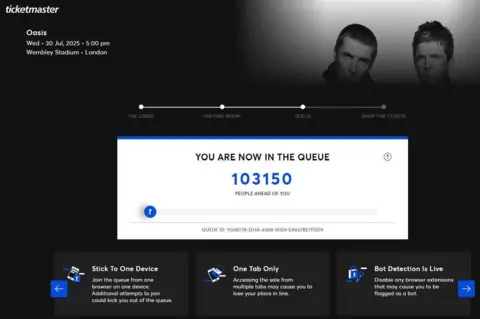 PA Media
PA Media
More than 900,000 tickets were sold for Oasis's long-awaited reunion tour in 2025, their first gigs since they split in 2009
Touts often list their tickets on resale websites and one former Viagogo employee alleged he had seen some profiles with thousands of tickets for sale.
"They [touts] buy in bulk most of the time in the hope of reselling and making a profit," he said, speaking on condition of anonymity.
"I don't know how they get their hands on them but I know that at some point they would have bought tickets in bulk in serious numbers.
"You're not allowing a lot of people to get access because you're hoarding the tickets."

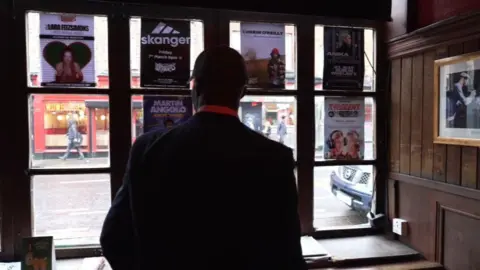
A former Viagogo employee, who spoke on condition of anonymity, claims he had seen a vendor with a profile selling thousands of tickets, something Viagogo denies
Viagogo said it refutes this man's claims, insisting 73% of sellers on its site sold fewer than five tickets each - and other sellers included sports clubs and promoters.
It is not just music concerts targeted by touts as the BBC found evidence of thousands of Premier League football tickets being advertised illegally.
Since 1994 it has been a criminal offence to resell tickets for football matches in the UK unless authorised, with the maximum penalty being a £1,000 fine.
But we found 8,000 tickets being advertised illegally online for more than face value for Arsenal's Premier League game with Chelsea at the Emirates Stadium on 16 March.
One of those sellers was a semi-professional footballer based in the UK.
Bogdan Stolboushkin has openly advertised tickets for football games totalling more than £60,000 on social media in the past year alone.
He sold our reporter a single ticket at double the face value.

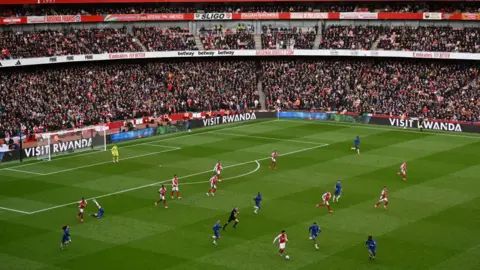 Getty Images
Getty Images
The BBC's investigation found thousands of tickets being advertised illegally online for more than face value for the Arsenal v Chelsea Premier League match in March
Mr Stolboushkin did not respond to multiple attempts to contact him about these allegations.
Another potentially illegal practice in the UK is "speculative selling", where touts list tickets for resale without owning them.
There is no guarantee these touts will actually secure a ticket and "speculative selling" was one of the reasons two touts were jailed for fraud in 2020.
Our investigation found at least 104 seats being "speculatively" listed on Viagogo for Catfish and the Bottlemen's August concert at Cardiff's Principality Stadium.
The exact seats appeared to be for sale at the same time on both Ticketmaster, the original point of sale, and Viagogo.

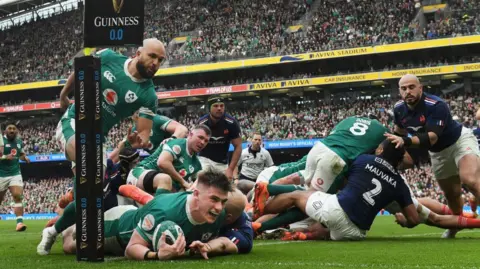 Getty Images
Getty Images
Our investigation found touts selling tickets for the 2025 Six Nations title-decider between Ireland and France in Dublin in March for way above face value
After we presented our evidence to Viagogo, it said: "Listings suspected to be in contravention of our policy have been removed from the site."
The UK government is looking at measures to try and tackle the issue, but evidence of the challenges faced can be seen in the Republic of Ireland.
In 2021, laws were introduced there to stop the resale of tickets above face value, but the BBC found this being flouted.
This included tickets to see the band Kneecap selling for four times their face value of €59 (£50), while tickets for the Six Nations Ireland v France rugby clash in Dublin were selling for £3,000.
One of Ireland's biggest promoters, Peter Aiken, said he had never heard of the company selling the tickets and questioned if the tickets existed at all.
Many ticket companies selling in Ireland are based overseas, which the BBC has been told helps them avoid punishment under Irish law.
Capping resale prices of tickets and regulating resale platforms was one of Sir Keir Starmer's manifesto pledges ahead of last year's general election.
Now he is prime minister, the UK government has held a consultation with proposals including a price cap that ranges from the original price to 30% above face value, introducing larger fines and a new licensing regime.

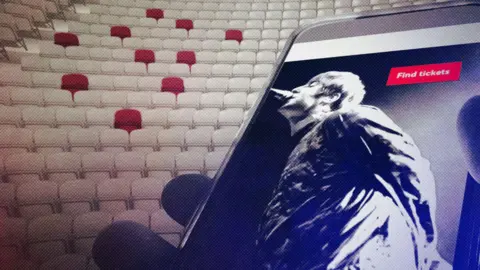
The BBC investigation has found touts have an army of people working for them to secure tickets for the most in-demand concerts
But Dame Caroline Dinenage, chairwoman of the UK government's cross-party Culture, Media and Sport committee said: "It's a minefield for people who just want to buy tickets for an event they want to enjoy.
"This evidence proves that there is not enough activity going on either from the government, in some cases from the police and certainly from some of these really big online organisations to be able to clamp down on this sort of activity."
The Conservative MP said this investigation highlighted "what a lot of consumers are already seeing that there is a whole world of, in some cases illegal, but it all cases immoral activity going on in the ticketing sphere".
"People are having to pay over the odds because others quite often are operating outside of the UK to make an absolute killing on buying up tickets, selling them at a huge premium and in some cases selling tickets that don't exist at all," she added.
The UK government's aim is to "strengthen consumer protections and stop fans getting ripped off", according to the UK culture secretary.
Lisa Nandy added she wanted to "ensure money spent on tickets goes back into our incredible live events sector, instead of into the pockets of greedy touts".

 3 months ago
109
3 months ago
109


